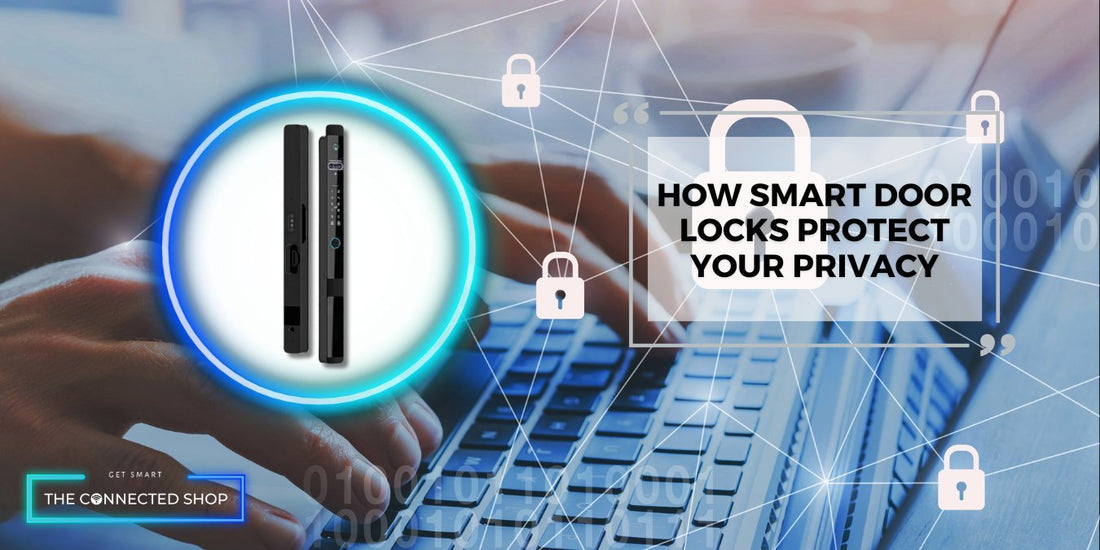As smart door locks become increasingly popular in homes around the world, they bring with them a host of benefits—enhanced security, remote access, and unparalleled convenience. However, for many homeowners, questions about privacy remain at the forefront. Can these internet-connected devices truly offer both security and privacy? How do they protect our personal data while still delivering the functionality we expect? This blog post delves into how smart door locks are built to safeguard your privacy without sacrificing security. We'll dispel common myths, clarify the technology behind these devices, and outline the steps manufacturers take to ensure your personal information remains protected. Join us as we explore how smart door locks provide a secure solution that respects your privacy every step of the way.
Data Encryption: The First Line of Defense
When it comes to protecting privacy, data encryption is one of the most vital tools at the disposal of smart door lock manufacturers. Encryption works by converting the data transmitted between your smart door lock, the connected app, and any associated devices into a secure code, making it unreadable to unauthorized parties. This process ensures that any information shared—such as access codes, lock status updates, or personal credentials—remains private and secure, even if intercepted by potential cyber threats.
Most smart door locks use advanced encryption protocols, such as AES (Advanced Encryption Standard) with 128-bit or 256-bit keys. These are the same standards used by governments and financial institutions, providing a high level of security for data in transit. The encryption process happens at multiple levels: from the moment a command is issued from the smartphone app to the lock, during communication with any smart home hubs or networks, and through cloud storage services, if used.
Beyond just encryption, many smart door locks also employ secure communication protocols like TLS (Transport Layer Security) to add another layer of protection against eavesdropping or man-in-the-middle attacks. Some manufacturers take additional steps by incorporating end-to-end encryption, ensuring that data is encrypted from the point it leaves your device until it reaches the lock, with no intermediate decryption points.
By utilizing these robust encryption methods, smart door locks offer a powerful defense against unauthorized access and data breaches, maintaining user privacy while delivering the convenience and security that smart home technology promises. This focus on secure data transmission reassures homeowners that their personal information and access credentials are protected from prying eyes.
Privacy by Design: Features That Prioritize User Security
Smart door locks are engineered with privacy in mind, incorporating various features that protect both your home and your personal information. This “privacy by design” approach ensures that these devices not only provide robust security but also respect and prioritize user privacy. Here are some key privacy-focused features that smart door locks offer to keep your data safe and secure:
Temporary Access Codes
One of the standout features of many smart door locks is the ability to generate temporary access codes. These codes can be issued to guests, service providers, or delivery personnel for a limited time, after which they automatically expire. This feature eliminates the need to share your permanent access credentials, significantly reducing the risk of unauthorized access. Additionally, you can control and monitor who enters your home and when, all while keeping your main access methods private.
Biometric Authentication
Biometric authentication, such as fingerprint recognition, adds an extra layer of privacy and security by ensuring that only authorized individuals can unlock the door. Unlike traditional keys or PIN codes, which can be lost, stolen, or shared, biometric data is unique to the user and difficult to replicate. This feature minimizes the risk of unauthorized entry and keeps your home and personal information secure.
Access Logs and Monitoring
Smart door locks often include detailed access logs that track every entry and exit. These logs provide valuable insights into who accessed your home and when, allowing you to monitor usage patterns and detect any suspicious activity. Access logs are typically stored securely within the lock's ecosystem, ensuring that this sensitive information remains private and only accessible to the homeowner.
Local Data Storage
To further protect user privacy, some smart door locks offer the option to store data locally on the device rather than in the cloud. Local storage ensures that your data is not exposed to potential vulnerabilities associated with cloud servers, offering peace of mind that your information remains under your control.
Customizable Permissions
Smart door locks allow homeowners to customize permissions for different users, ensuring that each person only has the access they need. For instance, you can grant full access to family members while limiting guests to specific times or days. This feature helps maintain privacy by restricting access to certain areas or functions within your home.
Automatic Locking
Automatic locking features ensure that your door locks automatically after a set period, reducing the risk of it being accidentally left unlocked. This simple yet effective function provides a reliable safeguard for maintaining both security and privacy, ensuring that your home is always secure when unattended.
By integrating these privacy-focused features, smart door locks provide a secure yet flexible solution that prioritizes user privacy without compromising on convenience or security. These tools empower homeowners to maintain control over who enters their home and how their personal data is managed, ensuring that privacy is preserved in every aspect of smart lock usage.
User Best Practices for Enhancing Privacy
Enhancing privacy with your smart door lock is essential, and there are several best practices to help protect your personal information. Start by setting strong, unique passwords for your smart door lock app and any related accounts, using a mix of letters, numbers, and special characters. Consider using a password manager for added security. Enabling two-factor authentication (2FA) adds an extra layer of protection, requiring a secondary verification method, such as a mobile device code, which reduces the chances of unauthorized access.
Regularly reviewing access logs allows you to monitor who enters your home and detect any suspicious activity early. Limiting guest access with temporary or one-time codes helps keep your permanent credentials secure. Keeping your smart lock’s firmware and app updated ensures you benefit from the latest security enhancements and bug fixes. If there are features you don’t use, such as remote unlocking or third-party integrations, consider disabling them to reduce potential vulnerabilities.
Securing your home network is also crucial, as many smart door locks connect via Wi-Fi. Use a strong password and WPA3 encryption, and consider setting up a separate network for your smart devices. Biometric authentication, like fingerprint recognition, adds another robust layer of security. Periodically review and update user permissions, removing access for those who no longer need it. Lastly, adjust your device’s privacy settings to control data usage and sharing according to your preferences. By following these steps, you can better protect your privacy while enjoying the convenience and security of smart door lock technology.
Conclusion
Smart door locks offer a powerful combination of convenience, cutting-edge technology, and robust privacy protections, making them an ideal choice for modern homes. While it’s natural to have concerns about privacy and data security, the features and practices discussed in this post highlight how these devices are specifically designed to address those issues. Advanced encryption, privacy-focused design elements, and secure storage options ensure your personal information remains safe while delivering the security and convenience you expect.
By adopting simple practices like setting strong passwords, regularly checking access logs, and securing your home network, you can further strengthen the privacy of your smart door lock system. These steps, combined with the privacy-focused features built into the devices, provide a comprehensive approach to protecting both your home and your data.
With smart door locks, there’s no need to compromise on privacy for the sake of security. By understanding and utilizing these privacy features and best practices, you can confidently enjoy the benefits of smart home technology, knowing that your personal information is safeguarded every step of the way.





